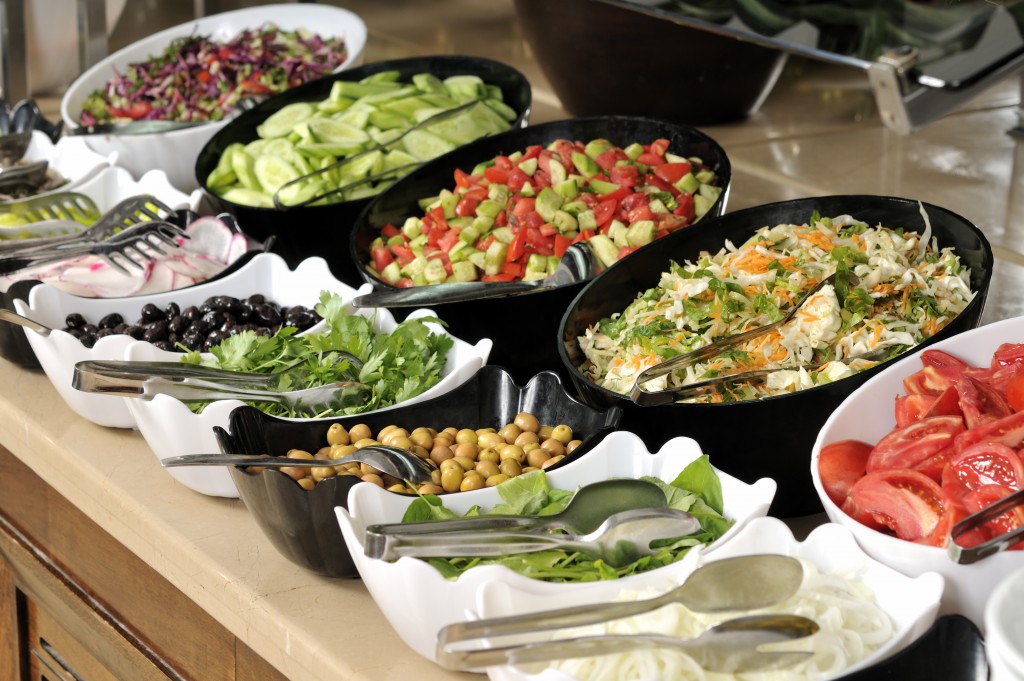If you want to start a salad business from the comfort of your home in Nigeria, you have come to the right place.
Starting a salad business can be an exciting and lucrative endeavour, catering to the increasing demand for healthy and delicious food options.
Whether you’re a culinary enthusiast or simply passionate about promoting wellness through nutritious meals.
This article will provide you with valuable insights and practical steps to kickstart your very own salad business from the convenience of your home in Nigeria.
How To Start A Salad Business from Your Home
Here are some basic things to consider before starting a salad business from the comfort of your home
1. Research and Plan
Before diving into any business, it’s crucial to conduct thorough research and develop a solid business plan.
Start by identifying your target market and carefully analyzing your competitors and understanding the local demand for salads in your area.
Determine your niche, whether it’s catering to health-conscious individuals, office-goers, or families looking for convenient meal options.
2. Define Your Menu
Create a diverse and appealing menu that offers a variety of salads to cater to different tastes and dietary preferences.
Include options for vegetarians, vegans, and those with specific dietary requirements. Experiment with unique combinations of fresh vegetables, fruits, proteins, and dressings to set your salads apart from others in the market.
3. Source Quality Ingredients
Ensure that you source fresh, high-quality ingredients for your salads. Establish relationships with local farmers, suppliers, and vendors who can provide you with fresh produce regularly.
Emphasize the use of organic ingredients whenever possible to attract health-conscious customers.
4. Set up a Sanitary Workspace
Maintain a clean and organized workspace in your home. Separate your salad preparation area from other household activities to ensure food safety and hygiene.
Invest in proper storage facilities to keep your ingredients fresh and prevent contamination.
5. Obtain the Required Permits and Licenses
Check with the local authorities to understand the legal requirements for starting a food business from home.
Acquire the necessary permits and licenses, such as a food handler’s permit, health and safety certification, and business registration.
6. Build an Online Presence
In today’s digital age, online presence is crucial for any business. Create a website or a social media page to showcase your menu, location, contact information, and any special offers.
Engage with your audience through regular posts, promotions, and customer testimonials.
7. Marketing and Promotion
Promote your salad business through various channels, both online and offline. Utilize social media platforms, local community groups, and food delivery apps to reach potential customers.
Offer introductory discounts, loyalty programs, or partnerships with local fitness centres or wellness studios to attract customers.
8. Provide Excellent Customer Service
Deliver exceptional customer service to build a loyal customer base. Respond to inquiries promptly, be attentive to customer feedback, and consistently deliver high-quality salads.
Personalize your service by accommodating special requests or dietary restrictions whenever possible.
9. Explore Delivery Options
Consider offering delivery services to reach a wider customer base. Partner with local delivery services or hire a dedicated delivery person to ensure timely and efficient delivery of your salads.
Packaging your salads attractively and securely is essential to maintain their freshness during transit.
10. Seek Growth Opportunities
As your salad business grows, explore opportunities to expand your operations. Consider opening a physical storefront, partnering with local cafes or restaurants, or catering events and gatherings.
Continuously innovate your menu and adapt to changing customer preferences to stay ahead of the competition.
- Read Also: Checklist for Popcorn Business
Is Salad Business Profitable
The profitability of a salad business can vary depending on various factors such as location, target market, pricing, quality of ingredients, competition, and operational efficiency.
However, conducting thorough market research, understanding customer preferences, adapting to evolving trends, and maintaining a focus on quality and customer satisfaction will significantly impact the financial viability of a salad business.
Hence, while the salad business can offer profitability potential, success is not always guaranteed.
Creative Salad Business Names
Before fully operating your salad business, you might want to give the business a name first, Here are some major highlights to consider before naming.
1. Determine what sets your business different from others
2. Make sure the name is relative to the salad
3. Aim for a name that is simple and easy to remember
4. Conduct a thorough trademark search
5. Share the potential name with friends and family first, and observe how they react to it, in case of any need for change.
If you are still confused about the naming, here are some suggested names that you can choose from
- Fresh Greens Delight
- Leafy Bites
- Crisp and Crunchy Salads
- Salad Sensations
- Garden-to-Table Salads
- The Salad Bowl Co.
- Savoury Greens
- Tossed and Tasty
- Green Leaf Gourmet
- The Art of Salad
- Salad Gallery
- Greenplate Salad
Read Also: Creative Deodorant Business Names
Feel free to mix and match words or modify these suggestions to create a unique name that suits your salad business.
How Much Does it Cost to Open a Salad Bar?
The cost of opening a salad bar can vary significantly depending on various factors such as the location, size of the establishment, level of customization, equipment needed, lease or purchase of the property, renovation costs, staffing requirements, marketing expenses, and other miscellaneous expenses. In Nigeria, a rough estimate can be thus
1. Initial Setup Costs
- Rent and renovation: ₦1,000,000 to ₦5,000,000
- Licenses and permits: ₦200,000 to ₦500,000
- Equipment (salad bar counters, refrigeration units, salad display units, food processors, etc.): ₦1,000,000 to ₦3,000,000
- Furniture and fixtures: ₦500,000 to ₦1,500,000
- Initial inventory (fresh produce, condiments, dressings, etc.): ₦500,000 to ₦1,000,000
- Point-of-sale system and technology: ₦200,000 to ₦500,000
2. Ongoing Operational Costs (Monthly)
- Staff wages and benefits: ₦500,000 to ₦1,500,000 (varies based on the number of employees and their roles)
- Utilities (electricity, water, gas): ₦100,000 to ₦300,000
- Raw materials and ingredients: ₦500,000 to ₦1,500,000 (depending on the scale of operations and menu offerings)
- Marketing and advertising: ₦100,000 to ₦300,000 (can vary based on marketing strategies and channels used)
- Maintenance and repairs: ₦100,000 to ₦300,000 (depending on equipment condition and requirements)
Please note that the figures provided above are rough estimates and should be used as a starting point for your financial planning
Read Also:
Online Food Vendor Business Checklist
Conclusion: Start Salad Business from Home
To wrap it up, starting a salad business from home in Nigeria offers a promising opportunity for aspiring entrepreneurs.
With the growing demand for healthy and nutritious food options, a home-based salad business can cater to the needs of health-conscious consumers conveniently.
It is essential to ensure compliance with local regulations, invest in necessary equipment and supplies, and prioritize food safety and hygiene.
Additionally, With careful planning, dedication, and a passion for healthy eating, starting a salad business from home in Nigeria can be a rewarding and profitable venture.

Legacy Benjamin is a serial SEO content writer with a half-decade of experience in the field of blogging. He is also a skilled business consultant, providing valuable insights to companies and individuals seeking growth and success. His expertise lies in crafting compelling and engaging content that captivates audiences and drives business results. For business deals, contact him


